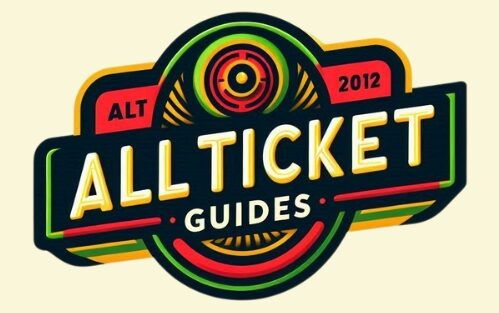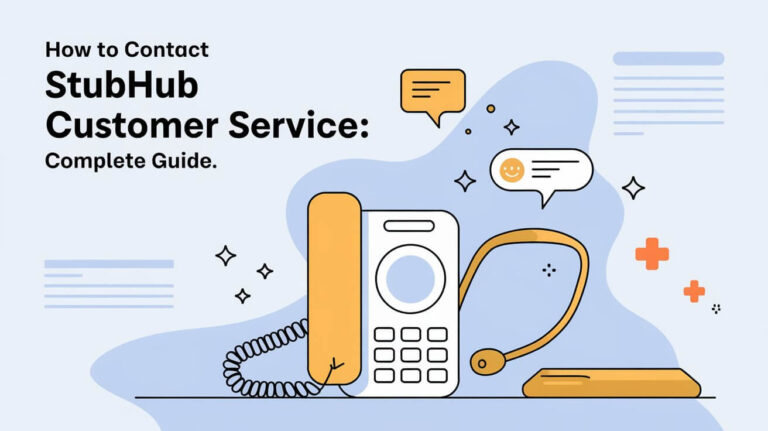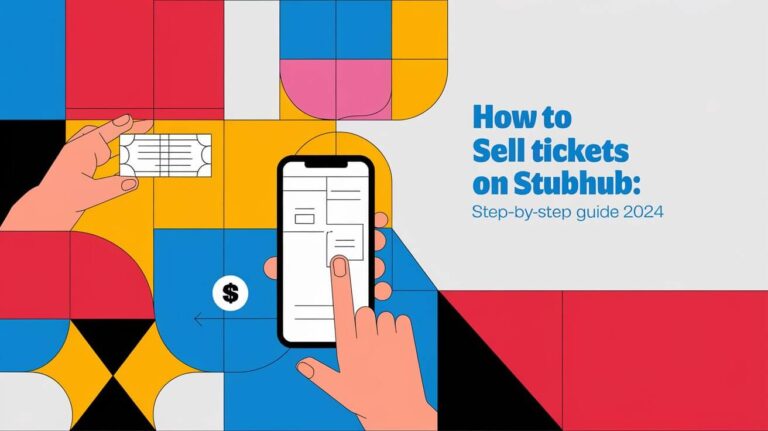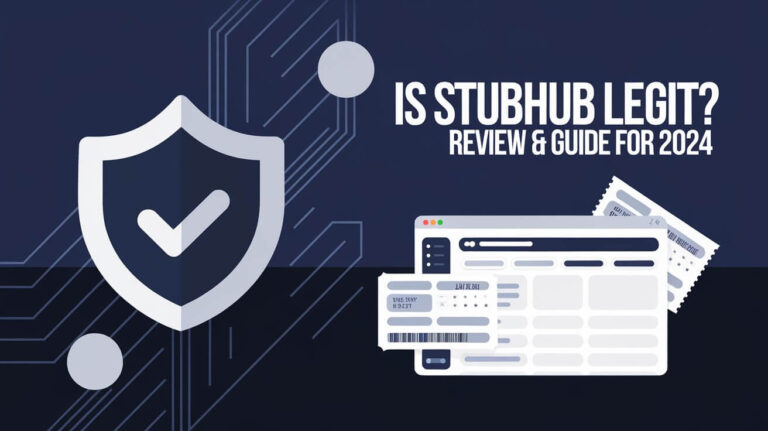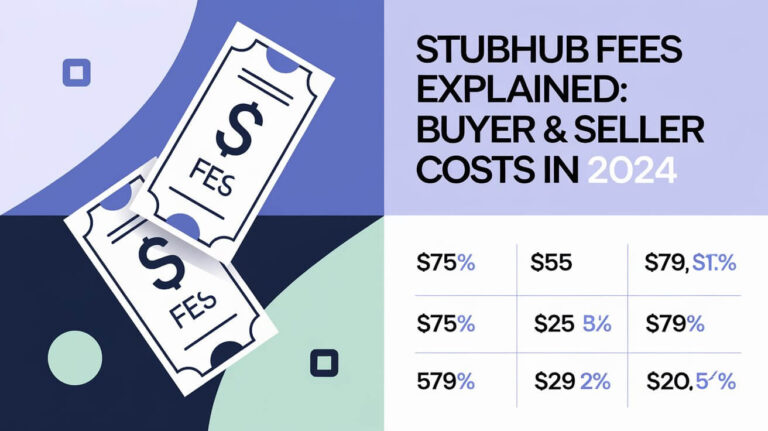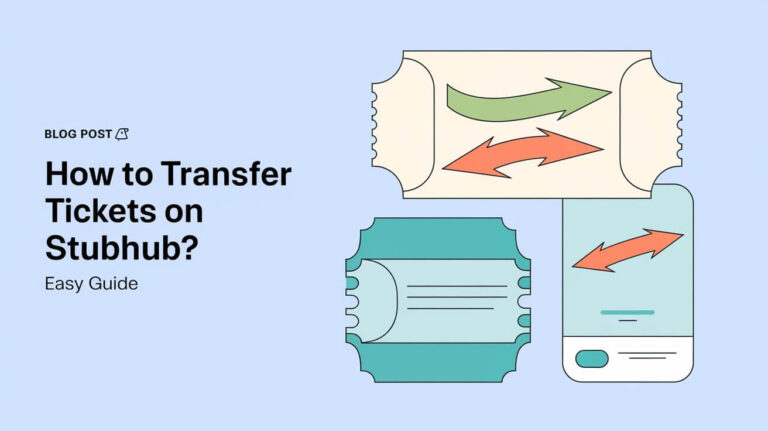Does StubHub Have Fees? Comprehensive Guide to Buyer & Seller Fees
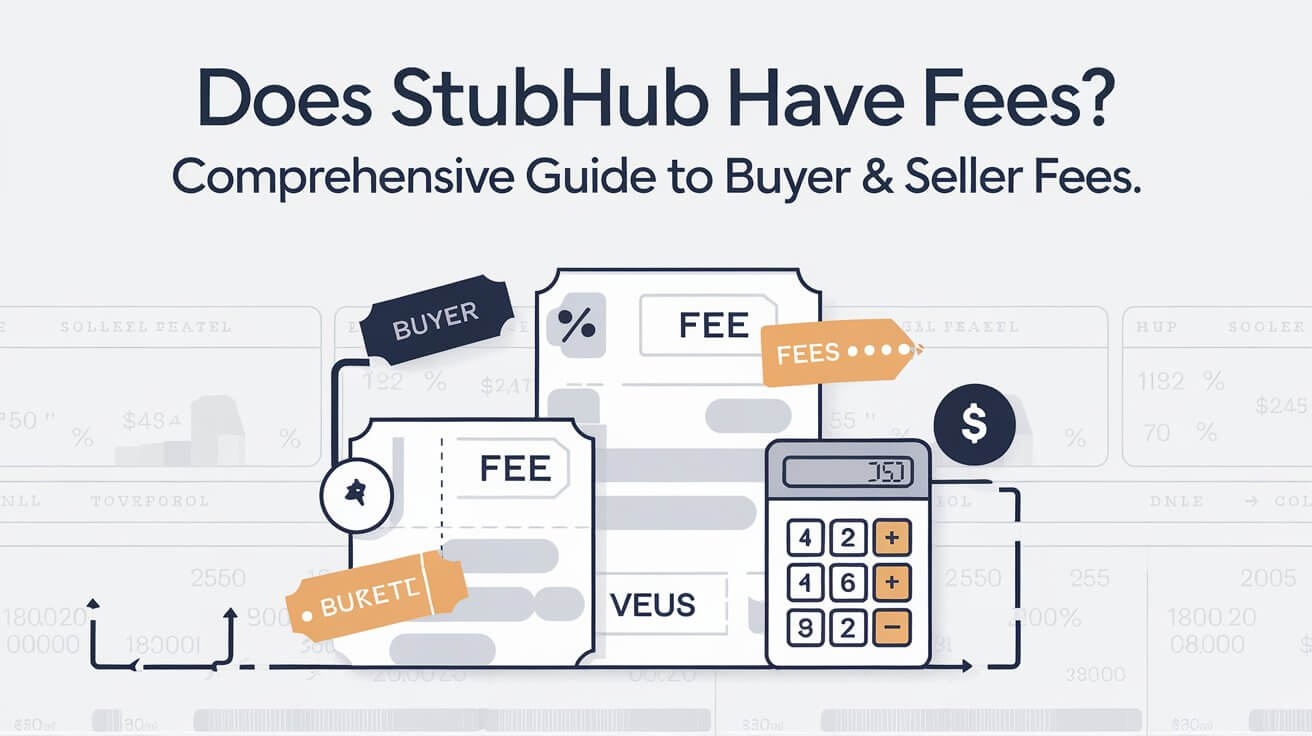
StubHub is a popular ticket marketplace that allows users to buy and sell tickets for various events, including concerts, sports, theater, and more. While StubHub offers convenience and a wide selection of tickets, it is important to understand the fees associated with using the platform. This article provides a detailed overview of StubHub’s fees, explores ways to avoid or reduce them, and compares StubHub with other ticket platforms.
StubHub’s Fee Structure
Buyer Fees
Service Fees
StubHub charges buyers a service fee, which is typically a percentage of the ticket price. This fee usually ranges between 10-20%. For example, if you purchase a $100 ticket, you might pay an additional $10 to $20 in service fees. This fee is disclosed during the checkout process, allowing buyers to know the total cost before completing the purchase.
Delivery Fees
In addition to the service fee, buyers may also face delivery fees. Digital delivery is often free, but physical delivery, such as mailing tickets, can incur additional costs. For instance, there might be a $5 fee for mailing tickets.
Seller Fees
Commission
Sellers on StubHub are also subject to fees. StubHub charges a commission fee, typically around 15% of the ticket’s selling price. This means if you sell a ticket for $100, you’ll receive $85 after the commission fee is deducted.
Additional Costs
Currency Conversion Fees
If you’re purchasing tickets in a different currency, StubHub may charge a currency conversion fee. This is something to keep in mind if you’re buying tickets for an event in another country.
Taxes
Depending on your location and the location of the event, you may also be subject to taxes. These are added at the end of the purchase process, so it’s important to factor them into your budget.
Avoiding or Reducing Fees
While StubHub fees are a part of using the platform, there are strategies to minimize them.
Alternative Marketplaces
Exploring other ticket platforms like SeatGeek or TickPick, which may offer lower or no service fees, can be beneficial. These platforms often have different fee structures that might result in savings. For example, TickPick prides itself on offering no hidden fees, allowing buyers to see the total price upfront.
Timing Purchases
Buying tickets well in advance can sometimes reduce fees. StubHub fees can increase as the event date approaches, so early purchases might save money. For instance, purchasing tickets for a concert three months ahead of time might help you avoid additional fees compared to buying the same tickets a week before the show.
Fan Clubs and Presales
Joining fan clubs or participating in presales can provide access to tickets with lower fees. Artists and teams often offer these opportunities to their fans, allowing for potential savings. For example, being part of a band’s fan club might grant you access to exclusive presales, helping you secure tickets without the steep fees.
Direct Purchases
Buying directly from the event venue’s website can sometimes eliminate fees entirely. This is especially true for smaller venues or less popular events where the venue handles ticket sales directly. For instance, purchasing theater tickets directly from the venue’s website might save you from paying service fees.
Utilizing Cashback and Rewards Programs
Some credit cards offer cashback or rewards programs that can offset ticket fees. By making smart card choices, you can turn those fees into valuable rewards. For example, if your credit card offers 5% cashback on entertainment purchases, you can use it to buy tickets on StubHub and get a portion of the fees back as cashback.
Comparison with Other Platforms
Other platforms like Gametime and TickPick focus on providing tickets with minimal or no hidden fees. These platforms allow for transparent pricing and might offer last-minute deals that are fee-friendly. Comparing different platforms before purchasing can ensure you get the best deal.
SeatGeek
SeatGeek often has a lower service fee compared to StubHub and includes the fees in the ticket price shown upfront. This transparency helps buyers know exactly what they are paying without any surprises at checkout.
TickPick
TickPick differentiates itself by offering no buyer fees. This platform allows buyers to see the total price upfront, which can be significantly lower compared to StubHub, especially for high-demand events.
Gametime
Gametime focuses on last-minute ticket sales with minimal fees. Their streamlined mobile app makes it easy to purchase tickets quickly, often offering deals for last-minute buyers.
Tips for Buying and Selling on StubHub
Buying Tips
- Compare Prices: Before purchasing, compare prices on multiple platforms to ensure you’re getting the best deal.
- Set Alerts: Use StubHub’s alert system to get notifications when ticket prices drop.
- Check the Event Date: Buying tickets well in advance can sometimes result in lower fees.
Selling Tips
- Price Competitively: Research similar listings to price your tickets competitively.
- Use Clear Descriptions: Provide detailed descriptions and good quality images to attract buyers.
- Choose the Right Delivery Method: Opt for digital delivery whenever possible to avoid additional fees.
Conclusion
Understanding StubHub’s fees and how to minimize them can help you make more informed decisions when buying or selling tickets. By exploring alternative platforms, timing your purchases, joining fan clubs, and using cashback programs, you can reduce the overall cost. Comparing different ticket marketplaces and utilizing tips for buying and selling can also ensure you get the best deal. Whether you’re attending a concert, sporting event, or theater performance, being aware of these fees and strategies will help you enjoy your event without breaking the bank.
